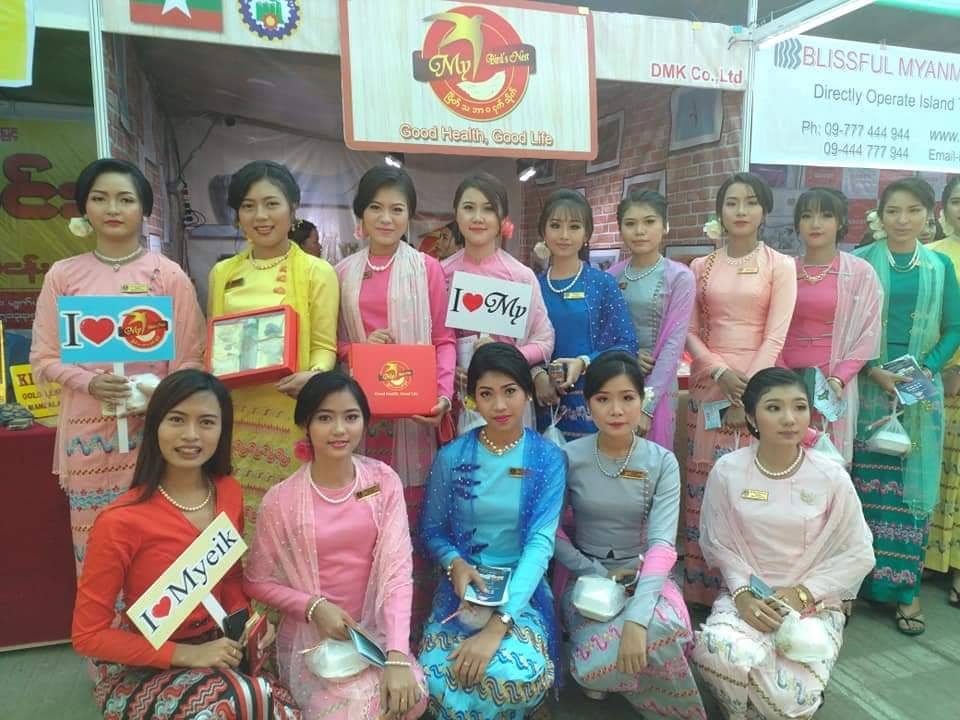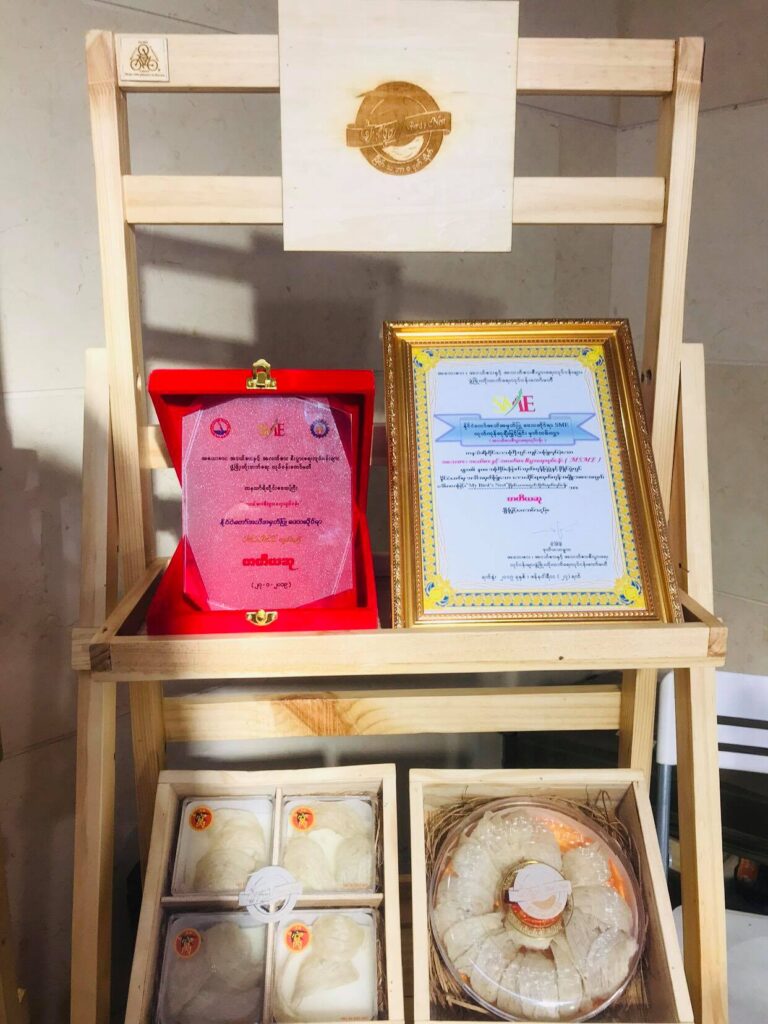
Logging off from a video call with a customer hundreds of miles away, Marlar jots the order notes in an email to her staff and shuts down her computer for the night. As a woman business owner in Myanmar, it would not be an overstatement to say she faces challenges every day. This is not a life her parents could have imagined, but she has reason to be proud of what she has achieved.
Six years ago, Marlar decided to break with convention by starting her own enterprise in a different direction from the family business. She saw a growing market demand for birds’ nests, and she wanted to take advantage of this opportunity.
Lacking the family background and expertise in this field, Marlar knew she needed to seek advice on how to make her business idea a success. She is grateful to senior members of the Myanmar Small and Medium Enterprises Development Department (SME) and Myanmar Women Entrepreneurs’ Association (MWEA) who offered advice and guidance in the early stages. SMEs have been prioritized by the Myanmar government in order to support the economic development of the country, and the MSME administers grants for small businesses from international funding sources, as well as hosting training for business owners from worldwide NGOs.
Marlar devotes herself to her enterprise, sacrificing her work-life balance in the name of ensuring the business runs properly. Nevertheless, she is optimistic about the future. Her message to other women entrepreneurs is persevere.
For management and economics training, Marlar took the initiative to seek mentorship from professors and experts at the nearby university. She credits associations for birds’ nest production for putting her in contact with other producers for peer-to-peer learning, as well as opening the doors to the international consumer market.
Armed with start-up capital from a grant and funds borrowed from her mother, Marlar started producing and exporting organic, high-quality birds’ nests in 2014. She was immediately effective at targeting her customers, and keeping quality standards high. The business has continued to flourish, and Marlar now leads an all-female staff in her small enterprise.

While the production of traditional products like birds’ nests does not lend itself to technological advances, the financial, marketing and human development aspects of the business are anything but old-fashioned. Myanmar itself has undergone a digital transformation since the days when Marlar started her business. Back then, only 13% of the population had a mobile phone, whereas now smartphones and broadband internet are commonplace. With Facebook advertising, online orders and payments, and business meetings conducted over Zoom, the internet is seamlessly connecting Myanmar producers like Marlar with customers around the world.
Marlar feels that online training has been particularly valuable in remote areas where in-person training is rarely available or would entail high travel costs, and offers the flexibility she needs as a busy businesswoman. She engages in online management training provided by the MWEA, and hopes to learn more about marketing and leadership.
Marlar feels that online training has been particularly valuable in remote areas where in-person training is rarely available or would entail high travel costs, and offers the flexibility she needs as a busy businesswoman
The COVID-19 pandemic has affected Marlar’s sales to her overseas customers, as the logistics of export were halted by lockdown. The business was also due to install new equipment as the pandemic hit, which has had to be delayed. Never to be put off, Marlar shifted her focus to wholesale delivery to other states, and now finds the demand is increasing once more.

Marlar does not deny the gender-based challenges she has faced in her work, acknowledging that birds’ nest production is strongly male-biased and there are still inequalities for women in business in South-East Asia. For example, a woman undergoing a business trip alone to meet with potential buyers in other countries has to consider the safety aspects, and there have been some opportunities she has had to forego for these reasons. In Myanmar, only a third of small businesses are owned by women, and there are still disparities in women’s access to the facilities designed to help businesses get on their feet, including internet access and approval for bank loans.
With her business growing, Marlar has no intention of sitting back. Having focused on the export raw material thus far, her next target is to move into processing, so that her business can export finished product at added value. Marlar devotes herself to her enterprise, sacrificing her work-life balance in the name of ensuring the business runs properly. Nevertheless, she is optimistic about the future. Her message to other women entrepreneurs is to persevere: “Keep trying and persevere through the challenges – don’t let them get you down!”
This interview is part of a series on women-owned SMEs (WSMEs) in four Southeast Asian countries, focused on how digitalisation presents new opportunities or challenges for women-owned businesses and how it could help them overcome their gender specific challenges.
Woomentum and KAS believe that empowered women in business who are equipped with digitalisation and innovation capabilities are able to build more sustainable and profitable businesses, empower other women and communities, and stimulate greater social and digital economic growth
